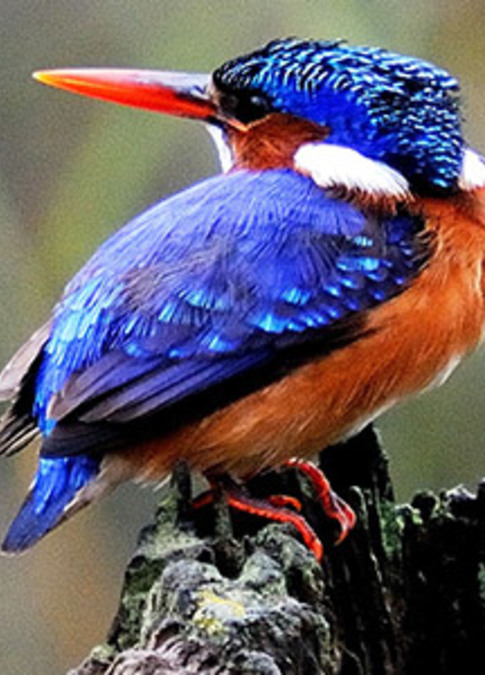Coucals and Hunting
As I write this I can hear coming from the garden the lovely liquid notes of a Coucal’s call. This handsome bird with its striking black, brown and white plumage is a bush-dweller and is seldom seen although often heard. Its food consists of insects, mice and other small creatures, but it also robs the nests of other birds, a habit of which my father strongly disapproved. He showed his disapproval by keeping a catapult and supply of small stones beside his chair on the verandah, and by firing these at any Coucal that dared to show its beak in the garden.
Growing up on a farm beside what had been until a few decades before his birth a troubled frontier, then living through the Anglo-Boer War and serving in the First World War, it was only natural that my father believed that a young boy should know how to handle guns. Even before I was a teenager I was using a rifle, initially on targets set up by my dad, and later, perhaps inevitably on the local wildlife.
One day he asked me what I intended doing with the pigeon that I had shot and carried home. I was at a loss to give him an answer. My mother certainly wouldn’t prepare it for the table, and as yet I had not learnt how to bake a pigeon in clay and so strip it of its feathers.
“Before killing any creature,” my father said, “be sure that there is a very good reason for taking its life. Remember always that life is the most precious gift we all have.”
“But Dad,” I replied, “you’re always shooting at Coucals, but all they’re doing is trying to find food.”
He smiled at me. “You’re quite right,” he said, “but the difference is that I just don’t want the Coucal robbing nests in our garden. If I intended to kill it I’d use a shotgun, but instead use a catapult to give it a fright.”
I don’t suppose that initially I paid much heed to his advice, but at least fifty years have now passed since last I went hunting. Yet I am not entirely opposed to hunting. There are good reasons why, at times, animals must be culled or dangerous creatures prevented from wreaking havoc. Ensuring one’s own survival or that of one’s community is always a priority. At times, for the benefit of all, it is essential to reduce the numbers of a particular species. There are also still communities that rely on wildlife for food, and increasingly South African stock-farmers are breeding indigenous antelope rather than domestic cattle. And I am certainly not averse to gnawing traditional South African biltong.*
These thoughts came to mind after coming across Louis Liebenberg’s book, The Art of Tracking*, in which, among other fascinating insights, he suggests that trackers were men who became receptive to observations that resulted in the development of scientific imagination. The huge advances in scientific knowledge made during our lifetimes, may be traced back to primitive men who by interpreting the information they found on the ground and the surrounding bush were able to make predictions regarding the movement of animals, and thus ensure the survival of themselves and their clan.
Liebenberg also states that hunters were always the most humble and gentle members of the tribe - not always true of modern-day scientists! – and that they often regretted the taking of life, acknowledging that each kill depleted their resources. He contrasts this attitude with that of today’s trophy hunters who, with far superior weapons and but a fraction of the tracking skills, pose proudly beside the carcasses of the animals they have shot.
My professional hunting friends will immediately jump to the defence of their customers who pay handsomely for the opportunity to hunt our game animals. It is true that these hunts bring large amounts of money into the country, and equally true that among the professionals there are many that have done a great deal to promote conservation, more in fact than an army of “bunny-huggers”. My argument is not necessarily with the professionals, but rather with the trophy hunters. What good reasons have they for taking a life? Is it merely in order to be able to show photographs of their exploits and boast to their friends? Where along the way has humanity lost the humility that, according to Louis Liebenberg, characterized the hunters of our distant past?
The Coucal is still calling, but I haven’t even a catapult with stones handy, and to tell the truth, I don’t even want to give it a fright.
*Biltong – Sun-dried salted strips of boneless meat.
*Liebenberg, L. 1990. The Art of Tracking: the origin of science. David Philip, Cape Town.









